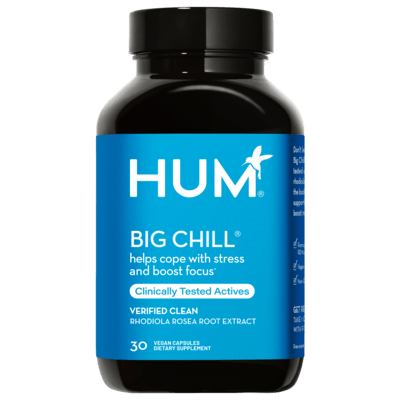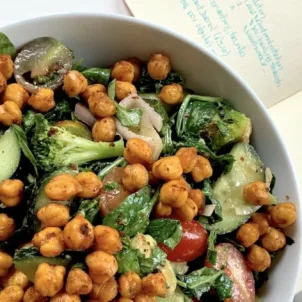Carrie Gabriel, MS, RDN, unpacks the link between nutrition and mental health. Plus: the best nutrients and foods that positively affect your mind, mood, and well-being.
When it comes to what we eat, many people think first about how food affects their physical health and appearance. However, eating well—which means having a diet full of fruits, vegetables, and other nutrients—can also help improve your mood and overall sense of well-being.
Many of us tend to separate the mind from the rest of the body, but good health matters from head to toe, inside and out. Our brains are affected by what we put into our bodies, too.
In this article, we’ll first look at the main chemicals at play before exploring the link between nutrition and mental health.




Brain Chemistry and Mental Health
Before we get more in depth on diet and mental health, let’s first take a look at some of the primary chemicals that influence your mind and mood the most.1. Dopamine
Among other things, dopamine impacts our emotions, thinking, judgment, and problem-solving. Popularly associated with pleasure, dopamine communicates with the front part of the brain to motivate you to work towards achieving a reward. For instance, dopamine is behind that rush you get when you’re ready to eat your favorite dessert. It’s worth noting that too little dopamine can lead to stress. However, too much of it can lead to dependence on this stimulating neurotransmitter. In terms of diet, this reliance can become a greater issue if you favor foods high in sugar, salt, and other things that should be consumed in moderation.
2. Oxytocin
Oxytocin is often referred to as the “love” hormone, as its levels increase with physical intimacy. It’s associated with empathy, trust, and building relationships as well as childbirth and breastfeeding. Research shows that females typically have higher levels of oxytocin than males, which makes sense since it plays a role in female reproductive functions.3. Serotonin
Serotonin is a key hormone for mood stabilization. While serotonin affects your whole body, it particularly:- helps the brain cells and other nervous system cells communicate with each other
- affects eating, sleeping, and digestion
- dictates feelings of happiness and general well-being
4. Endorphins
If you’ve ever heard of the runner’s high, that feeling comes from endorphins. Endorphins also mask pain and discomfort; they also help us push our bodies beyond their comfort levels. Endorphins allow us to persist when we might otherwise want to throw in the towel.
How Nutrition Affects Mental Health
Simply put, nutrients nourish our bodies. In terms of nutrition for mental health, getting enough diverse nutrients on a consistent basis can:- lead us to have more stamina + clarity
- promote overall happiness
Macronutrients vs. Micronutrients
Before we get to specific nutrients and the best foods for mental health, let’s first recap the different types of nutrients we need for overall health. First, there are macronutrients. On top of fiber and water, we have:- protein
- carbohydrates
- fat

Nutrition for Mental Health
Curious about the best nutrients for mental health? Here’s a closer look at what types of foods you should prioritize to stay healthy, happy, and thriving.Protein
When it comes to food and mental health, protein is king. In particular, a high intake of L-tyrosine—an amino acid found in protein-based foods—is key for dopamine production. These amino acids are found in such foods as:- beef
- turkey
- dairy
- eggs
- legumes
Omega-3s
Next, foods rich in omega-3 fatty acids are highly beneficial for mental health. A nutrition plan for mental health should include good sources of these healthy fats, which you can find in:- eggs
- seafood, such as salmon + trout
- seeds, such as chia + flax
- some plant oils
- fish oil supplements, such as OMG! Omega the Great
Probiotics
Probiotics play a major role in the gut-brain connection, as well. The gut and brain are physically linked through the vagus nerve, which oversees many of our bodily functions including mood control. Simply put, the two are able to send messages to one another. While the gut can impact emotional responses in the brain, the brain can also change the type of bacteria living in the gut. In fact, stress can suppress beneficial gut bacteria. According to the American Psychological Association, gut bacteria produce about 95 percent of the body’s supply of serotonin. With that in mind, you can bolster the gut-brain connection with probiotic supplements and/or foods such as:- Greek yogurt
- kombucha
- kimchi

Additional Vitamins + Minerals for Mental Health
Finally, a range of vitamins and minerals including magnesium, vitamin D and vitamin C can help protect your mental health. Magnesium-rich foods include:- avocado
- spinach
- almonds
- dark chocolate
- salmon
- egg yolks
- fortified breakfast cereals
- citrus fruits
- strawberries
- broccoli
More Ways to Boost Mental Health
While we’ve learned that nutrition and mental health are inextricably linked, there are many other ways to boost and protect mental health, too. Some top tips to complement your diet for mental health include:- exercising regularly for a natural mood-booster + endorphin fix
- hugging loved ones to boost oxytocin
- getting sunshine to naturally elevate vitamin D levels
- spending time with friends to foster greater connections
More like this









